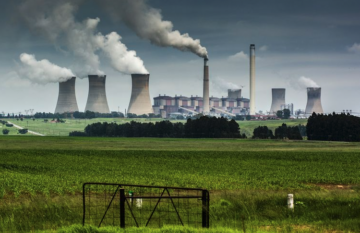 Bruce Baigrie in Phenomenal World:
Bruce Baigrie in Phenomenal World:
South Africa has one of the most carbon-intensive economies in the world. It is also in a staggering and protracted unemployment crisis—the real unemployment rate, including discouraged work-seekers, is near 50 percent. But there remain tens of thousands of workers employed in South Africa’s coal mining and power sector. The combination marks South Africa as a country desperately in need of the ever-elusive “just transition.”
The announcement at COP26 of an international climate finance deal of $8.5 billion to fund a transition away from coal has been understandably welcomed across the political spectrum. Under the proposed deal, Eskom, South Africa’s state-owned utility, will receive funding to ease the decarbonization process and the transformation to a renewables-based power sector. But this renewable energy will come overwhelmingly from private firms, continuing the path set in motion by decades of policymaking to liberalize and privatize electricity generation.
The COP26 deal was announced weeks before Eskom chief executive André de Ruyter announced the separation of its transmission wing. The announcement marks the success of the long-term government policy of restructuring or “unbundling” Eskom. Proposed in the post-apartheid era, unbundling would separate the transmission, generation, and distribution functions of the public utility. In the context of the energy transition, it sets South Africa on a path of leaving major investment decisions to the market, with Eskom increasingly relegated to a supporting role in managing the country’s grid.
More here.
